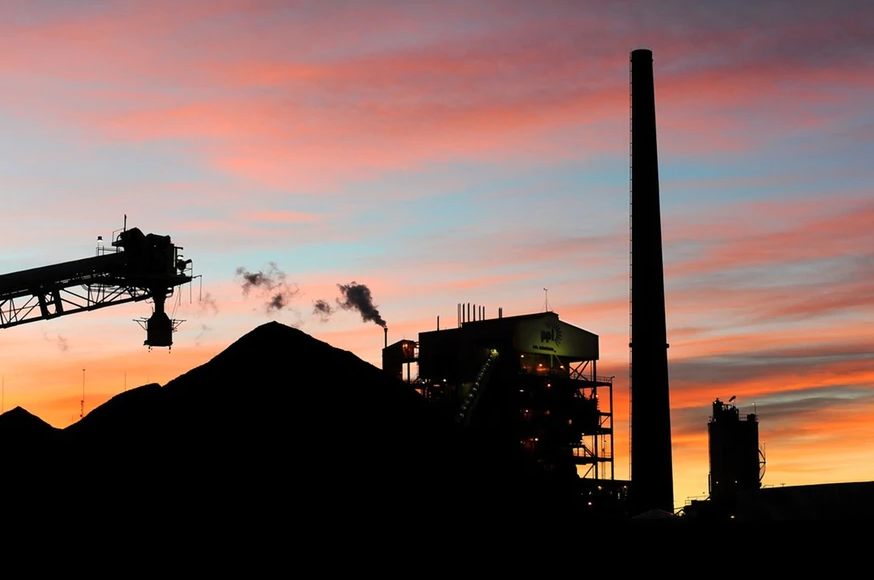Reliance on fossil fuels is putting the planet under increasing pressure. Keystone / Larry W. Smith The latest United Nations Human Development Report has found that countries, including Switzerland, still struggle to achieve high levels of human development without straining the planet. My specialty is telling stories, and decoding what happens in Switzerland and the world from accumulated data and statistics. An expatriate in Switzerland for several years, I have also worked as a multimedia journalist for the Swiss national broadcaster. More about the author | French Department The coronavirus pandemic is only the latest crisis confronting our planet. If people don’t release their grip on nature, other crises are likely to come. That’s one of the big
Topics:
Swissinfo considers the following as important: 3.) Swiss Business and Economy, 3) Swiss Markets and News, environment, Featured, newsletter
This could be interesting, too:
Nachrichten Ticker - www.finanzen.ch writes Die Performance der Kryptowährungen in KW 9: Das hat sich bei Bitcoin, Ether & Co. getan
Nachrichten Ticker - www.finanzen.ch writes Wer verbirgt sich hinter der Ethereum-Technologie?
Martin Hartmann writes Eine Analyse nach den Lehren von Milton Friedman
Marc Chandler writes March 2025 Monthly
The latest United Nations Human Development Report has found that countries, including Switzerland, still struggle to achieve high levels of human development without straining the planet.
The coronavirus pandemic is only the latest crisis confronting our planet. If people don’t release their grip on nature, other crises are likely to come. That’s one of the big takeaways from the most recent UN Human Development Report published on December 15. This is the first time countries’ carbon dioxide emissions and material footprints are included in the definition of progress.
SWI swissinfo.ch spoke with Pedro Conceição, a UN official in charge of the report, via Skype from his offices in New York.
How is humanity developing?
The Human Development Report is published annually by the United Nations Development Programme (UNDP). It contains the Human Development Index, which measures a country’s well-being using three dimensions: health (life expectancy), level of education and income (gross domestic product per capita).
SWI swissinfo.ch: What are the conclusions of the report that struck you the most?
Pedro Conceição: There are two things, that really surprised me. The first is tied to the new reality that we are facing as humanity. There is no precedent, neither in our history nor in the history of the planet. I am not just thinking about climate change but also the loss of biodiversity and the exploitation of raw materials. The impact of this change is so dramatic, that scientists talk about a new geological time age – the Anthropocene.
The second thing that struck me concerns inequality. Human activity puts pressure on the planet, but not everyone bears the same responsibility and is impacted the same way. Those who suffer the consequences are not necessarily those who are damaged or who exploited the planet’s resources. The weakest are the ones who suffer the most.
SWI: How has the coronavirus pandemic impacted human development around the world?
P.C.: We don’t know the exact origins of the new coronavirus, but we know, that the number of zoonotic diseases is on the rise and that has increased along with the increased pressure on nature and the planet.
Covid-19 has an important impact on inequality, for example on gender-specific inequality: women suffer more than men. It also touches almost all three building blocks of the Human Development Index (HDI), and almost everyone in the world.
Coronavirus has an impact on our health, not only directly, but also indirectly, because it puts the health system under pressure. Immunisation rates are falling in many developing countries, which could lead to an increase in child mortality. We also know that the economic downturn is having a negative impact on incomes.
And finally, education also suffers: many children around the world can continue to go to school as long as they have a computer, electricity, and an internet connection. In countries with a low HDI, some 86% of children don’t have these conditions and are effectively unable to continue learning. In countries that rank high on the index, the rate is 20%.
SWI: A material footprint is included in the report for the first time. How did this change the global ranking of the Human Development Index?
P.C. For 30 years we’ve seen progress lead to improvements in human development. However, we can’t neglect the pressure this has put on the planet. That’s why we have included a new index, the PHDI, that considers CO2 emissions and the material footprint.
The key finding is that no one country achieved a very high level of human development without putting a strain on the planet. We see a big gap between the two indices in countries that rely on fossil fuels for their energy supply.
There are, however, countries, including Costa Rica, Panama and Moldova, which have a very high human development but place less burden on the planet. This is an important message: it is possible to have a high human development and a low burden on the planet.
SWI: Switzerland ranked second on the HDI 2019 index, just behind Norway. Can it be considered a good example with this new environmental index?
P.C.: The difference between the two indices is not very big for Switzerland. This indicates that Switzerland is on its way to a less intensive use of fossil fuels for its energy supply. However, you can’t talk about a pattern as there is no country that behaves as it should.
SWI: At the last G20 Summit, Swiss president Simonetta Sommaruga called on industrialised countries to build a more sustainable plan for the economic reconstruction after the pandemic. Are we headed in the right direction?
P.C: Everyone can decide how to distribute the resources for the recovery: we can either continue putting pressure on natural resources or we can invest in the future. We know that the current way of consuming and producing doesn’t align with our goals. If we don’t change, what we are now experiencing with Covid-19 will become the norm.
The European Union, China, Japan and Switzerland have all made commitments, however, to reach net-zero emissions. This is encouraging even if there is a need for more ambition.
SWI: The first human development report was published in 1990. Which trends predicted 30 years ago have been confirmed?
Instead of making predictions, the report sought to change perspectives on development. The first edition said that people should be the focus of development and not the economy. This reformulation helped initiate different approaches to tracking human development.
The first report introduced the Human Development Index, which includes an income indicator but combines it with advances in health and education. This counteracts the view that development should be measured in terms of gross domestic product.
Tags: Environment,Featured,newsletter










